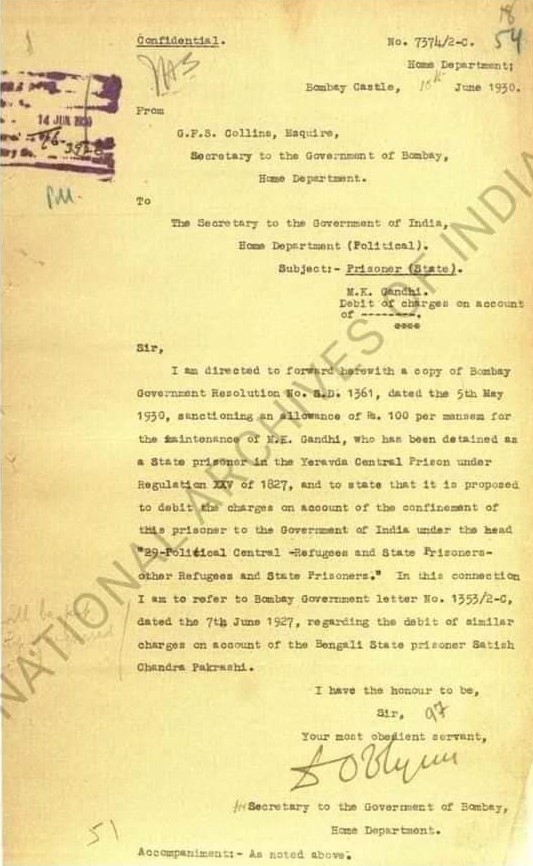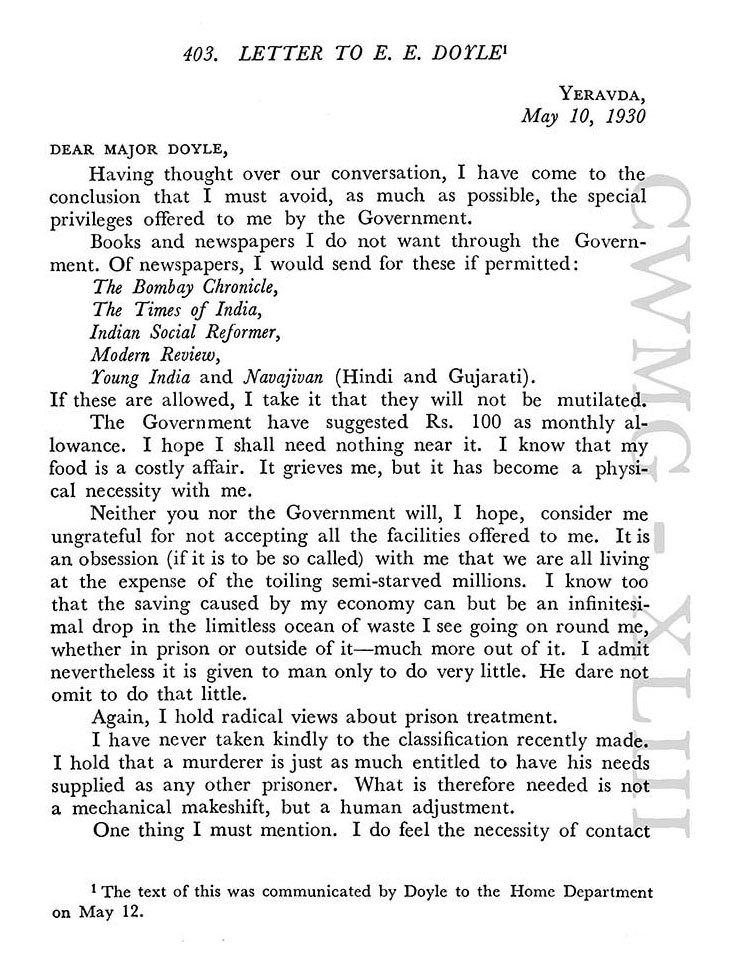
Some men changed their times...
One man changed the World for all times!
Comprehensive Website on the life and works of
Mahatma Gandhi
+91-23872061
+91-9022483828
info@mkgandhi.org

+91-23872061
+91-9022483828
info@mkgandhi.org
Did Gandhi get Rs. 100/- for ‘Personal Expenses’ from the British?No! It was allocated to the prison department. |
- By ChaitanyaA social media post asserting that a document sourced from the National Archives states that Gandhi used to be granted Rs. 100 monthly allowance by the British government is being widely shared. This allowance supposedly aimed to cover his expenses. The post, which has gained significant traction, insinuates a potential connection between Gandhi and the British authorities as suggested by the shared document. Through this article let’s fact-check the claim made in the post. Claim: Gandhi used to receive allowance of Rs. 100 monthly by the British government. 
Gandhi did not receive the allowance directly:The viral document in question is in fact, a letter authored by G.F.S. Collins, who served as the Secretary to the Home Department of the Government of Bombay, addressed to the Secretary of the Home Department of the Government of India. The letter is available on the India Culture official website. In the letter, Collins suggests the idea of allocating the approved Rs. 100 allowance for the maintenance of MK. Gandhi, who was incarcerated as a state prisoner at Yeravda Central Prison. This amount was provided to the prison department, and debited to the Government of India under the head ‘29-Political Central Refugees and State Prisoners- other Refugees and State Prisoners. Further, there is no mention of handing over the amount to Gandhi directly. It was a general practice:It is important to highlight that during that period, in accordance with The Bengal State Prisoners Regulation of 1818, it was a customary procedure for the government to provide an allowance to significant state prisoners who were under detention. Given that the viral letter refers to Gandhi as a state prisoner, and the charges are debited on account of the confinement of this prisoner to the Government of India under the head ‘29-Political Central Refugees and State Prisoners- other Refugees and State Prisoners’, it becomes evident that Gandhi received this allowance in accordance with the prevailing law (here). Several other prisoners received such allowance:In fact, numerous political prisoners, revolutionaries, and similar individuals received such allowances. However, the quantum of allowance varies and was subjectively determined at the discretion of government officials. Upon a close examination of the letter, there is a reference to the deduction of comparable expenses for a state prisoner from Bengal named Satish Chandra Pakrashi. One can find petitions submitted by state prisoners from Mandalay jail requesting the provision of an allowance under the 1818 regulation, on the India culture website. This additional evidence reinforces the fact that the allowance granted by the government was not exclusive to Gandhi but was extended to several other individuals as well (here). Gandhi refused to accept the allowance:
Image credit: gandhiheritageportal.org It is worth mentioning that on 10 May 1930, Gandhi communicated from Yeravada Jail to E. E. Doyle, who held the position of Inspector General of Prisons for the Bombay Presidency, expressing that he did not require such a budget for his maintenance while incarcerated. He went on to write “The Government has suggested Rs. 100 as monthly allowance. I hope I shall need nothing near it. I know that my food is a costly affair. It grieves me, but it has become a physical necessity with me.” This indicates that Gandhi was allocated a monthly allowance of Rs. 100 for his sustenance during his time as a state prisoner at Yeravada Central Prison. To sum it up, Gandhi did not personally receive the allowance, instead, it was allocated to the prison department. Courtesy: Factly.in, dt. 20.8.2023 |